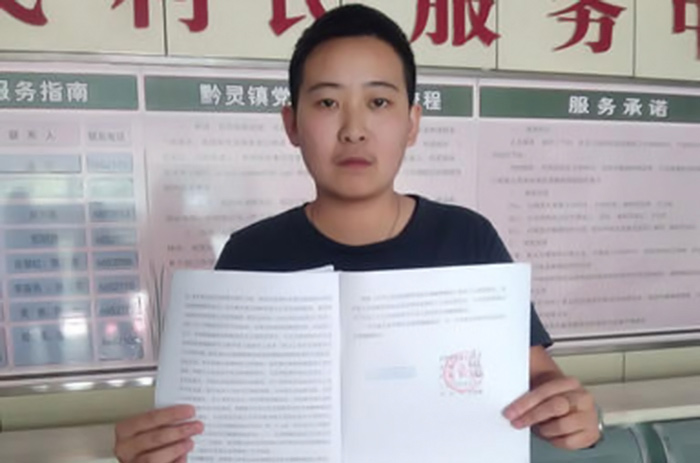>> Chinese man loses in country’s 1st transgender labor dispute
[spacer]
Un comité d’arbitrage chargé d’examiner « les conflits du travail » a rejeté la plainte d’un homme transgenre, qui accusait son employeur de discrimination. Monsieur « C. » avait été licencié huit jours seulement après son recrutement par une clinique dans la province du Guizhou (sud-est). Mais la commission a décidé d’écarter un enregistrement audio compromettant, dans lequel le responsable de l’établissement expliquait s’être séparé de son salarié « en raison de son statut de transgenre ».
« Nous sommes extrêmement déçus », a commenté son avocat Me Huang Sha. Le plaignant espérait obtenir une victoire inédite. Selon plusieurs médias, c’était la première fois en Chine qu’une plainte était examinée concernant un licenciement pour discrimination supposée à l’encontre d’une personne transgenre.
« Le comité a également rejeté les requêtes du plaignant réclamant un mois de salaire comme compensation et des excuses écrites », a ajouté M. Huang. Les arbitres ont estimé que l’homme n’avait « pas les compétences adéquates » pour son poste de commercial.
« Son apparence ne correspondait vraiment pas à nos standards ».
La clinique a simplement été enjointe de verser à son ex-employé quelque 400 yuans (environ 60 francs suisses). La rémunération couvre la semaine de sa période d’essai.
Si la communauté chinoise LGBT bénéficie d’une acceptation croissante, en particulier auprès de la jeunesse urbaine, les attitudes conservatrices persistent et les homosexuels font encore l’objet d’une très forte pression familiale et sociale. Mais les activistes n’hésitent plus à combattre les discriminations devant la justice, même si les succès sont encore mitigés.
Monsieur C. envisage ainsi de faire appel de la décision auprès d’un Tribunal local.
[spacer]
>> A Chinese transgender man said he was disappointed but will continue to fight for equality after a labor arbitration panel on Tuesday rejected his complaint that he was fired unfairly, in China’s first transgender job discrimination case.
The man, who uses the name Mr. C to protect his parents’ privacy, said the panel in the southwestern province of Guizhou granted his demand for about $62 in back wages but also ruled that his employer broke no law in dismissing him.
« I am not satisfied with just the paid-back wages. What I want is respect, and respect from the whole of society for minorities like us, » Mr. C said in a phone interview shortly after the arbitration panel handed down its decision.
« I am very disappointed about the result, » he added. « This (arbitration) process has made me realize that discrimination against sexual orientation is far worse than I had expected, and I will continue to appeal to defend my rights. »
Mr. C was hired in 2015 for a sales job with a local health services center but was let go eight days later, when the probation period ended. Mr. C believed he was dismissed because he lives as a man even though he was born a woman.
The arbitration panel rejected a voice recording in which the company’s sales manager told Mr. C that the way he dressed would negatively affect the firm, said Huang Sha, a lawyer for Mr. C. The panel ruled that the conversation « did not represent the company’s true intent, » citing the fact that the sales manager did not work in the personnel department.
Instead, the panel accepted a performance evaluation produced by Ciming Health Exam Center that stated Mr. C did not demonstrate adequate skills for the sales job, Huang said.
« We think the evaluation is an excuse, » the lawyer said, adding that the sales manager had previously acknowledged Mr. C’s abilities.
Both Huang and Mr. C said they plan to appeal the labor panel’s decision at a local court.
A woman who works for Ciming denied Tuesday that the company discriminated against Mr. C. She refused to provide her name or further details.
China does not recognize many LGBT rights such as gay marriage and its laws do not protect people from discrimination based on sexual orientation or gender identity.


















